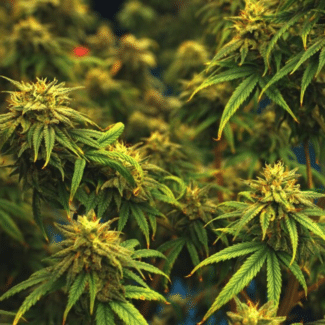New York Cannabis Injunction Delays Opening of New Dispensaries
The ongoing legal battles in New York’s cannabis industry have led to significant delays in the opening of new dispensaries. A recent injunction halts the issuance of dispensary licenses, leaving many applicants in uncertainty. As existing businesses brace for potential market shifts, the situation raises concerns about the credibility and effectiveness of the Office of Cannabis Management. The implications of these legal challenges may reshape the state’s cannabis landscape for months to come.

Another day, another lawsuit to rock the cannabis industry of New York. The latest New York cannabis injunction has completely halted the issuance of dispensary licenses, yet another roadblock for an already rocky road. Here’s what you need to know about the latest legal drama holding up the Empire State’s cannabis market.
Background: The CAURD Licensing Drama
If you feel like you have whiplash from all the lawsuits in New York State, you’re not alone — this has been going on for months and is centered around the legitimacy of CAURD retail licenses.
The latest lawsuit has played out like this: it was filed by four-service disabled veterans who felt it was unfair that the state gave precedence to justice-impacted individuals and social equity applicants rather than opening the CAURD retail marijuana licensing for everyone at once. The service-disabled veterans were joined in their suit by the Coalition for Access to Regulated & Safe Cannabis, a group made up of New York’s medical cannabis companies. The Coalition also has a separate lawsuit filed.
On August 7, a judge in Uster County, NY, issued an injunction to prevent the New York Office of Cannabis Management (OCM) from allowing any more CAURD-licensed businesses to open. On August 18, the judge issued a second injunction blocking the OCM from issuing more cannabis licenses.
The Office of Cannabis Management appealed the decision on August 24 and shared a list of businesses they felt met the judge’s requirements to open. But the judge disagreed, and on August 30, he refused to exempt any business from the injunction because the OCM failed to comply with court orders.
The Immediate Impact of the New York Cannabis License Injunction
All of this runaround has one terrible conclusion — any and all new dispensaries in the state of New York are at a standstill. Businesses with licenses cannot open storefronts, and the OCM cannot issue any more retail marijuana licenses; a stunning blow to the new and growing industry.
All of this has put the OCM squarely in the crosshairs of public opinion, and the public is ready to start firing. There is a palpable level of frustration from business owners and consumers across the state, some siding with the court and others in opposition. The ruling and the comments from the judge don’t offer the marijuana regulators any help, instead undermining their credibility and ability to effectively regulate.
The OCM is the face of all of this, but they do not deserve the entirety of the blame. After all, the Office of Cannabis Management is just that — an office of the administration. Many of the delays in the rollout were due to staffing issues, which can be traced back to funding issues and the untimely delay after the passage of the Marijuana Regulation and Taxation Act.
Forecasting the Consequences
The following is a mere handful of consequences we may see unfold in the coming months as a result of the current legal drama.
Delays in Dispensary Openings
This ruling is a major setback for the New York cannabis industry. Under the injunction, no more CAURD licenses can be issued until it’s lifted, and that could take months, leaving applicants in a state of limbo, not knowing how long they’ll have to wait.
It also puts people with existing marijuana dispensary licenses in a bad spot, as new dispensary openings could be delayed for several months or into 2024. The OCM has issued over 400 CAURD licenses, but there are less than 20 dispensaries in the entire state — a minuscule number for such a populous state.
Market Implications
On the other hand, the injunction certainly reduces competition in the legal cannabis arena for those existing businesses. This may funnel more consumers to existing stores and allow them to see an increase in revenue. This market monopoly may influence existing retailers to increase prices due to their market capture, or they may keep prices as low as possible to compete with the illicit market — only time will tell.
Parallel Markets: A Silver Lining for Illegal Trade?
Meanwhile, this ruling is likely to be seen as a boon to the legacy and illicit cannabis market still thriving in NY. Without easy access to tested, affordable cannabis products, there’s nothing to keep consumers from going back to “the weed guy” they’ve been buying from for years. Unlicensed shops are thriving in NYC despite the police’s best efforts, and they’re capturing plenty of interest from tourists and residents alike.
Legal Implications and Future Prospects
The OCM certainly isn’t taking all of this without a fight. The office, along with the Cannabis Control Board, is expected to appeal the latest ruling, but which way it will go is anyone’s guess. If they lose again, the entire future of the New York legalized marijuana industry could look different.
How far will this lawsuit (or any of the other ones) go? That is also up for debate. It could go to appeals to the state supreme court, where a ruling would have far-reaching implications for the recreational cannabis program.
One thing is for certain — the rollout of the recreational market in NY hasn’t gone as hoped. These lawsuits have undoubtedly stunted the development of the program and harmed the credibility of the legal industry. But it isn’t over until it’s over.
Not The Legal Cannabis Market Envisioned in the MRTA
The situation in New York changes regularly, and who knows what next week will bring. It’s been a rocky road for the 17 New York cannabis businesses to become operational, and an even rockier road for consumers looking for safe, tested products. All eyes are on New York State as the state desperately tries to create a viable industry among the chaos — chaos that cannabis industry veterans are only too familiar with.
Protecting your cannabis company can seem confusing; however, we’re a full-service insurance brokerage working with carriers worldwide to offer you the best coverage possible. We’re here to help! Please reach out to us today by emailing info@alpharoot.com or calling 646-854-1093 for a customized letter of commitment or learning more about your cannabis insurance options.




